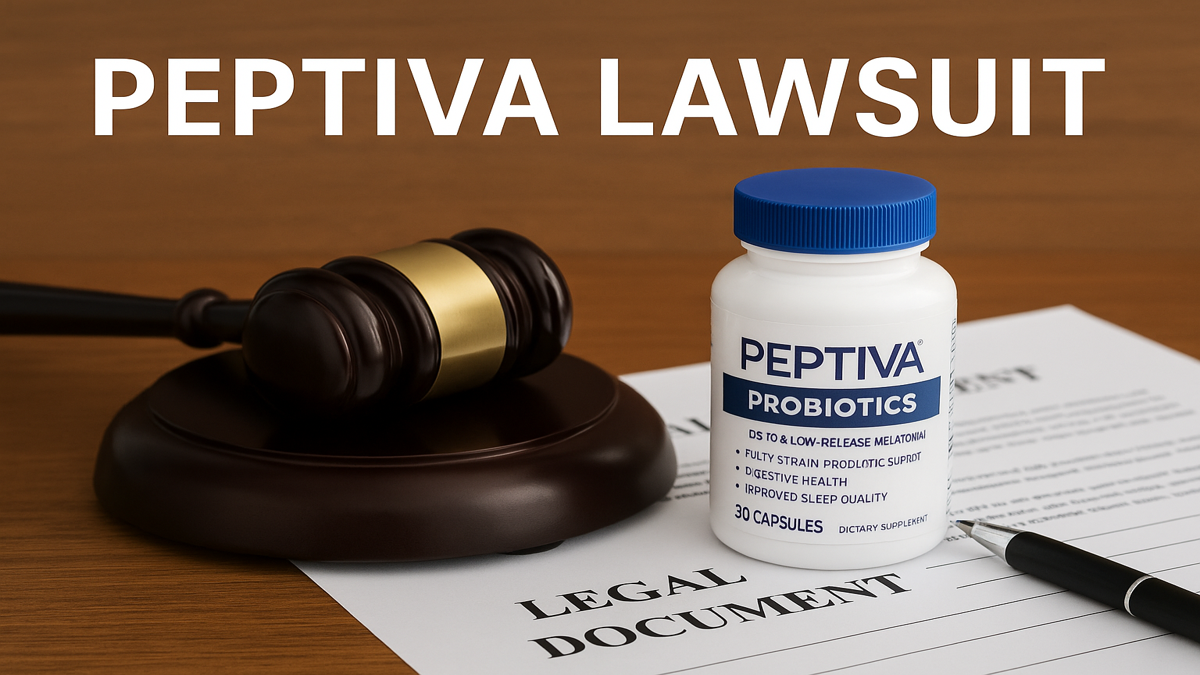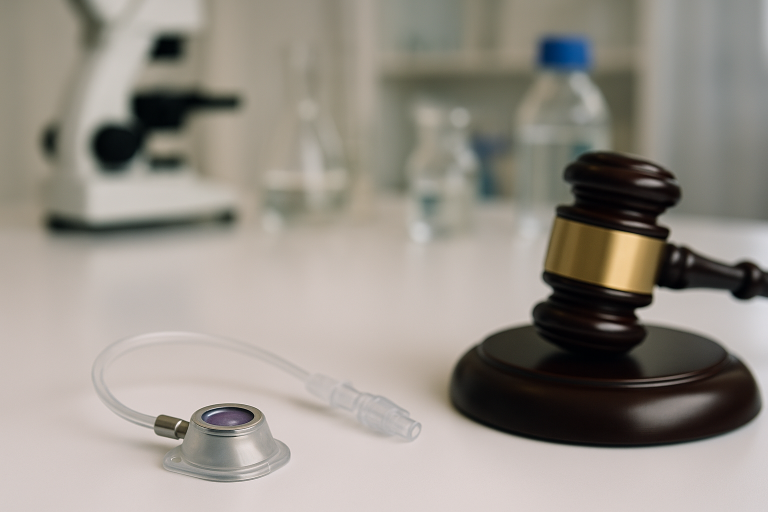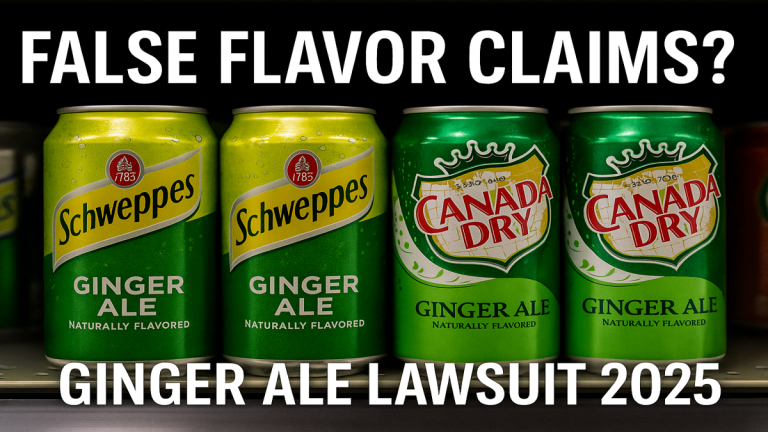Peptiva is under serious legal scrutiny. The company marketed its supplement as a solution for digestive issues and better sleep. Millions believed these claims and added Peptiva to their daily routine. Now, many feel misled and frustrated. The Peptiva lawsuit has become a major legal event, spotlighting how health products are promoted.
At the center of the issue are three main concerns. First, Peptiva made promises without scientific proof. Second, Peptiva charged customers repeatedly after they signed up for free trials. Third, the company failed to disclose side effects like nausea and insomnia clearly. These issues have triggered formal complaints and legal investigations.
If you used Peptiva or know someone who did, you may want to understand the risks. This article explains the lawsuit, why it matters, and what steps you can take next. Your health and your money deserve clear, honest information.
What is Peptiva and Why is it Popular?
Peptiva is a probiotic supplement. It claims to improve gut health and help you sleep better. The brand rose quickly through aggressive marketing and celebrity endorsements. People trusted the product based on positive online reviews. It was widely sold on TV, e-commerce platforms, and pharmacy shelves.
At first, many users reported small improvements. But over time, complaints increased. Customers spoke up about surprise charges, side effects, and a lack of results. Some even felt worse after using the supplement. These stories spread through reviews, forums, and news outlets. That’s when lawyers began to investigate. Now the company faces a full-blown lawsuit.
Major Allegations in the Peptiva Lawsuit
The lawsuit lists three main claims. Each point to how Peptiva misled buyers or failed to protect their rights. These complaints come from real customer stories.
Misleading Advertising Claims
- Peptiva claimed its formula supports digestion and deep sleep.
- Customers say they saw no such results even after regular use.
- The company gave no strong clinical studies to back these claims.
- Many feel they were misled into trusting the product.
Lawyers argue that making bold health claims without evidence breaks the law. Customers relied on those promises when making their decisions. That’s why this issue is central to the case.
Hidden Subscription Charges
- Users thought they signed up for a free trial.
- Soon after, they saw recurring charges on their bank statements.
- The product cost about $70 per month after the trial.
- Canceling the subscription was often confusing or delayed.
These surprise charges frustrated many people. They didn’t expect to pay more after two weeks. Most say the terms were hard to find. The company failed to make billing practices clear.
Undisclosed Side Effects
- Customers experienced nausea, cramps, and diarrhea.
- Others had trouble sleeping or woke up feeling worse.
- Headaches and fatigue were also reported.
- These effects were not mentioned clearly on the label.
A supplement that claims to help shouldn’t make people feel worse. Customers say Peptiva failed to warn them about these reactions. That raises serious safety concerns.
| Allegation Type | Core Issue |
|---|---|
| Advertising | Claims lacked proof and misled consumers |
| Billing Practices | Free trials led to surprise charges |
| Side Effects | Common reactions were not properly disclosed |
Current Progress of the Peptiva Lawsuit
Right now, the lawsuit is in the discovery phase. This is the part where both sides gather facts. Legal teams are reviewing emails, company records, and medical reports. They are also collecting stories from users like you.
Court hearings are expected to begin in mid-2024. The judge will decide if Peptiva broke consumer protection laws. If the court agrees with the claims, the case will move forward.
Attorneys are building a strong case to prove that Peptiva’s actions were unfair. The company may try to settle, but that hasn’t happened yet. More people are coming forward to share their experiences.
Possible Consequences for Peptiva
If Peptiva loses the case, the impact could be huge. This lawsuit might change the rules for how supplements are sold in the future. Here’s what could happen:
- Fines and Payouts: Peptiva could pay millions in refunds and legal penalties. Consumers might get back the money they spent.
- Better Rules: The FDA might require clearer product labels. This helps you understand what you’re buying.
- Stronger Claims Testing: Before making health claims, companies may need verified studies.
This case could raise the bar for every company that sells supplements. It could also help prevent future problems for buyers like you.
Consumer Experiences: Common Side Effects
Hundreds of users have shared their experiences online. Many had similar symptoms after using Peptiva. These stories are now part of the evidence in the lawsuit.
- Digestive Problems: Some felt bloated, sick, or had stomach cramps.
- Headaches: Users complained about frequent headaches or foggy thinking.
- Sleep Trouble: Instead of sleeping better, they experienced restless nights or nightmares.
These effects caught many users by surprise. The product claimed to improve health but caused discomfort instead. People expected relief and got the opposite.
| Side Effect | How Often It Happened | How Bad It Was |
| Gut Issues | Very common | Often severe |
| Headaches | Regular | Moderate to severe |
| Sleep Disruption | Frequent | Often distressing |
How the Peptiva Lawsuit Could Change the Industry
This lawsuit isn’t just about one brand. It can lead to real change in how supplements are marketed. Right now, the rules are too loose. Many companies stretch the truth to make a sale.
- Clearer Labels: Companies may need to list real risks and test results on the package.
- More Oversight: Government agencies could demand more proof before approving claims.
- Fewer Surprise Charges: Subscription offers could be required to show clear terms upfront.
If courts rule in favor of consumers, this case may become a model. Other supplement makers may adjust their practices to avoid lawsuits.
Steps for Consumers Affected by Peptiva
If you used Peptiva and faced problems, you’re not alone. You may qualify to join the lawsuit or file your own claim. Here’s what to do next:
- Save Proof: Keep any purchase receipts, bank records, or product boxes.
- Document Symptoms: Write down the side effects you experienced.
- Contact a Lawyer: A consumer law firm can help you understand your options.
These steps will strengthen your case if you decide to take legal action. Acting early gives you more time to prepare.
Frequently Asked Questions about the Peptiva Lawsuit
What is the Peptiva lawsuit about?
It challenges the company’s false claims, unclear billing, and failure to disclose side effects.
Can I be part of it?
Yes, if you used Peptiva and experienced harm or surprise charges. A lawyer can help you check your eligibility.
What will I get if they win?
You might receive a refund, medical cost coverage, or compensation for stress.
Where can I learn more?
Watch legal news websites or call a law firm that handles class actions.
Peptiva Lawsuit: Why It Matters
You should expect honesty from any company that sells health products. The Peptiva lawsuit raises important questions about consumer trust. When people buy supplements, they rely on accurate information. If the claims are false or the risks are hidden, the damage can be real.
This case could set new rules for how companies market their supplements. It could lead to clearer labels, stricter oversight, and fairer billing practices. Buyers should not have to read fine print to protect their wallets. Everyone deserves to know what they are taking and what it might do to their body.
The outcome of this case will affect more than just Peptiva. Other brands may change their tactics to avoid similar lawsuits. As a consumer, you have power. Staying informed and asking questions helps protect your rights. The Peptiva lawsuit is one more reason to demand better from the supplement industry.




